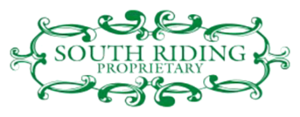
The South Riding Proprietary is a homeowners’ association (HOA) that acts as a defacto local government for the South Riding community in Loudoun County, Virginia. At the proprietary’s annual meeting on May 21, 2019, two seats on the Board of Directors are up for election. Members of the board serve three year terms. South Riding property owners may cast votes for these two board seats either by attending the annual meeting in person, or by submitting a proxy vote ahead of time. Proxy votes may be cast using paper ballots that were mailed to property owners, or electronically on the South Riding Proprietary web site.
The annual meeting must achieve a quorum (combining in-person attendance and proxy ballots) of at least ten percent of all South Riding property owners. If a quorum is not achieved, the meeting will be recessed for a period of less than thirty days. At the resumption of the meeting, a quorum of only five percent is required. The meeting may then be repeatedly recessed and resumed until the five percent quorum is achieved. The South Riding Board of Directors cannot seat members or perform any official work without a quorum.
Three candidates appear on the director ballot: David Christopher Brent, Pat Himes, and Steve Pasquale. Property owners may vote for up to two candidates, and may write-in other names if desired.
HOAs have some value as providers of shared community services, including maintenance of common areas and private streets, trash services, snow removal, community pools, playgrounds, parks, and so-on. For these and other purposes, the Virginia General Assembly has authorized their operation under the Property Owners’ Association Act (Code of Virginia § 55.1-1800 to 55.1-1836). But most HOAs (including South Riding’s) claim numerous other authorities to restrict the use of private property—regulations dealing with lawn and grounds maintenance, exterior design standards, limitations on the freedom of speech and expression (e.g., outdoor signage), and more.
These broad authorities are supposedly authorized by the disclosures (i.e., covenants) that property owners accepted at the time they purchased a property in the HOA neighborhood. Among the terms each homeowner accepted was that they would include the same disclosures when selling the property later. In practice, this establishes a defacto government that pretends to be authorized by a web of interminable contracts. But we would not accept this kind of arrangement in any other context. Imagine if Ford required as a condition of purchase that you join the Ford Owners’ Association, and that you obey its current and future decrees about how you use your car for as long as you own it . . . and that you must pass along these requirements to the new owner when you sell the car. This arrangement would be promptly shot down by the Federal Trade Commission and the courts . . . and rightfully so.
Your property is your property, and you may do whatever you want with it as long as you don’t directly harm others. Compulsory HOAs, at least when they restrict the use of private property, violate Article 1, Section 11, of the Constitution of Virginia, which guarantees that citizens may not be deprived of their property without due process of law (paragraph 1), and states that the right to private property is fundamental (paragraph 3). They also likely violate the similar protections in the Fifth Amendment to the U.S. Constitution.
The South Riding Proprietary (and all other HOAs) must repeal all unconstitutional policies and regulations, and end extralegal civil enforcement of them. Until it does, I recommend that all South Riding property owners abstain from voting in the Board of Directors election. We should deny them a quorum and prevent them from operating at all until they confine themselves to the proper, legally permissible areas of operation.
If you are uncomfortable with abstention, I suggest casting a single vote for David Christopher Brent, who is the least objectionable of the candidates on the ballot. He demonstrates a respect for human rights and limited government, and is least likely to impose upon private property rights any more than absolutely necessary.

